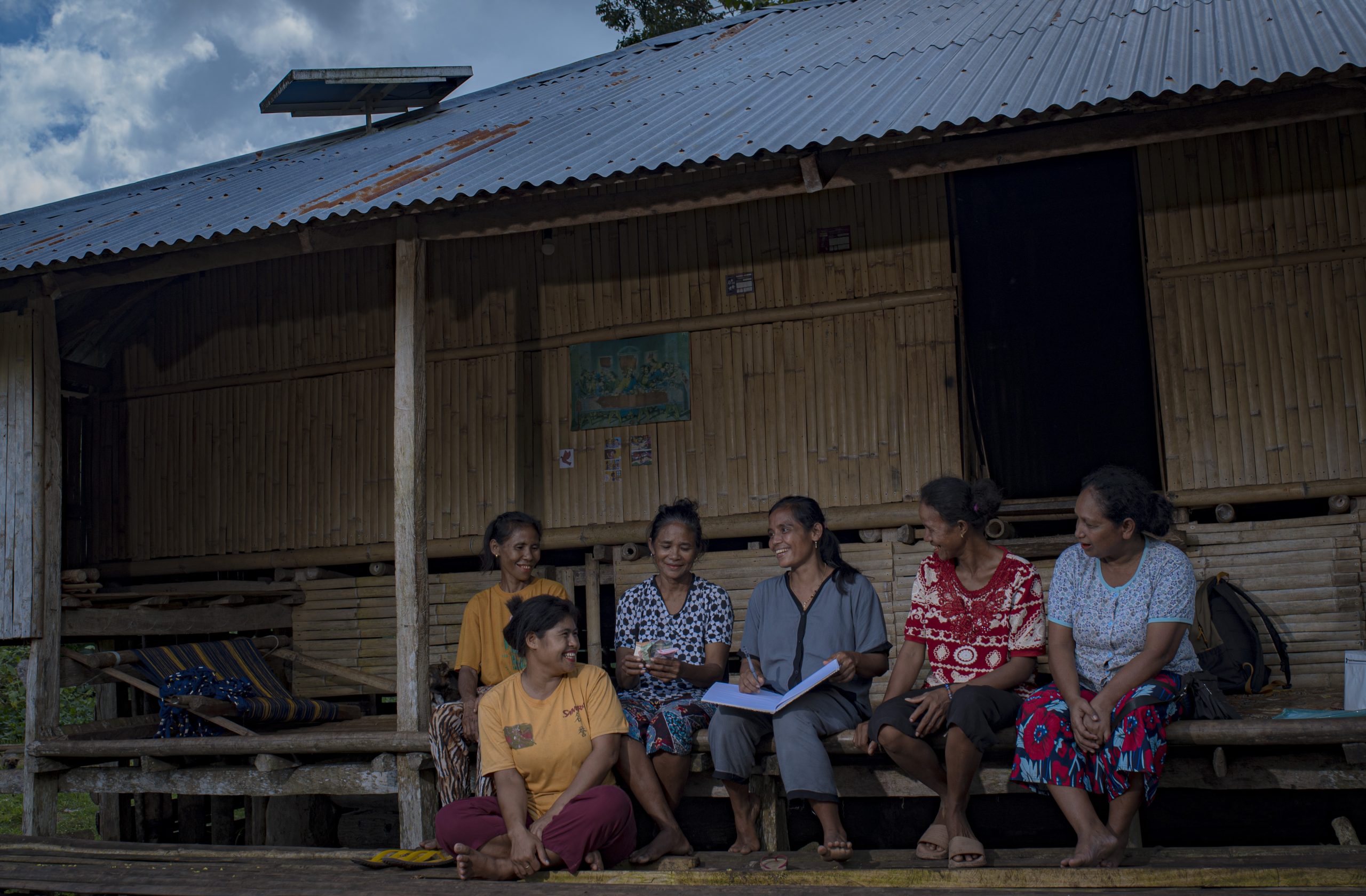
Dominggus Ditawora is a warm man. He resides in Waiholo Village, Sumba Barat Daya. Often, while telling stories, he smiles and laughs. The villagers call him a cold, blessed hand.
There is a reason for this. Dominggus, who works as a farmer, is also skilled at helping village women during childbirth. He inherited this ability from his parents. He is also good at weaving.
In mid-May 2025, Dominggus untied a thread in a terrace of a villager’s house. The terrace of the house, which yard is covered with grass, is always used by the members of the Lamba Leko Group to meet and weave. His wife, Yustina Gheru Walu, is a member of the group and serves as treasurer.
Yustina said, Dominggus is not a fussy man. He does a lot of work and has many skills. Weaving is one of them. In many areas on Sumba Island, it is considered inappropriate for men to engage in weaving activities as it is attributed to women. In reality, there are no rules or traditional customs prohibiting men from weaving.
Waiholo is a different village in general. Here, men and women have equal status. The division of work is also equal. They work in the garden together and manage the household together. It is not taboo to see Waiholo men sweeping the house, washing, and cooking. “Ouwww, is there a problem with that outside?” asked Yustina.
Yustina was amazed to know that in many places the patriarchal system develops poorly. “A woman involved in activities for a long time has nothing to worry about. Husband can also take care of the children,” she said.
A Group that Empowers
Lamba Leko is a group that serves as a home for female weavers in Waiholo. In this place, they gather and grow together. This group was formed and became active in September 2024. It became a place for them to share stories and support each other.
Yustina said, many people talk about money in the group. They don’t know that the most fundamental one is the spirit of the group members to support each other. Some members share stories about many things, and this group provides them with insights.
They never knew that what they were doing was the most important process. “I don’t know. It’s normal for people to tell stories, and we give advice,” she said.
In Waiholo, weaving is an activity that is not taught by force. Naturally, children will be interested in helping their parents with spinning, setting up the loom, or helping to insert wood between the threads to make patterns.
Ernesta Jaha Baba (27 years old), the group leader, said that weaving is not new in the Waiholo community. “I have learned to weave since primary school. Then it keeps going,” she said.
“How can you not be interested in weaving when you see your parents weaving every day. Going to your neighbor’s house and seeing people weaving,” she continued.
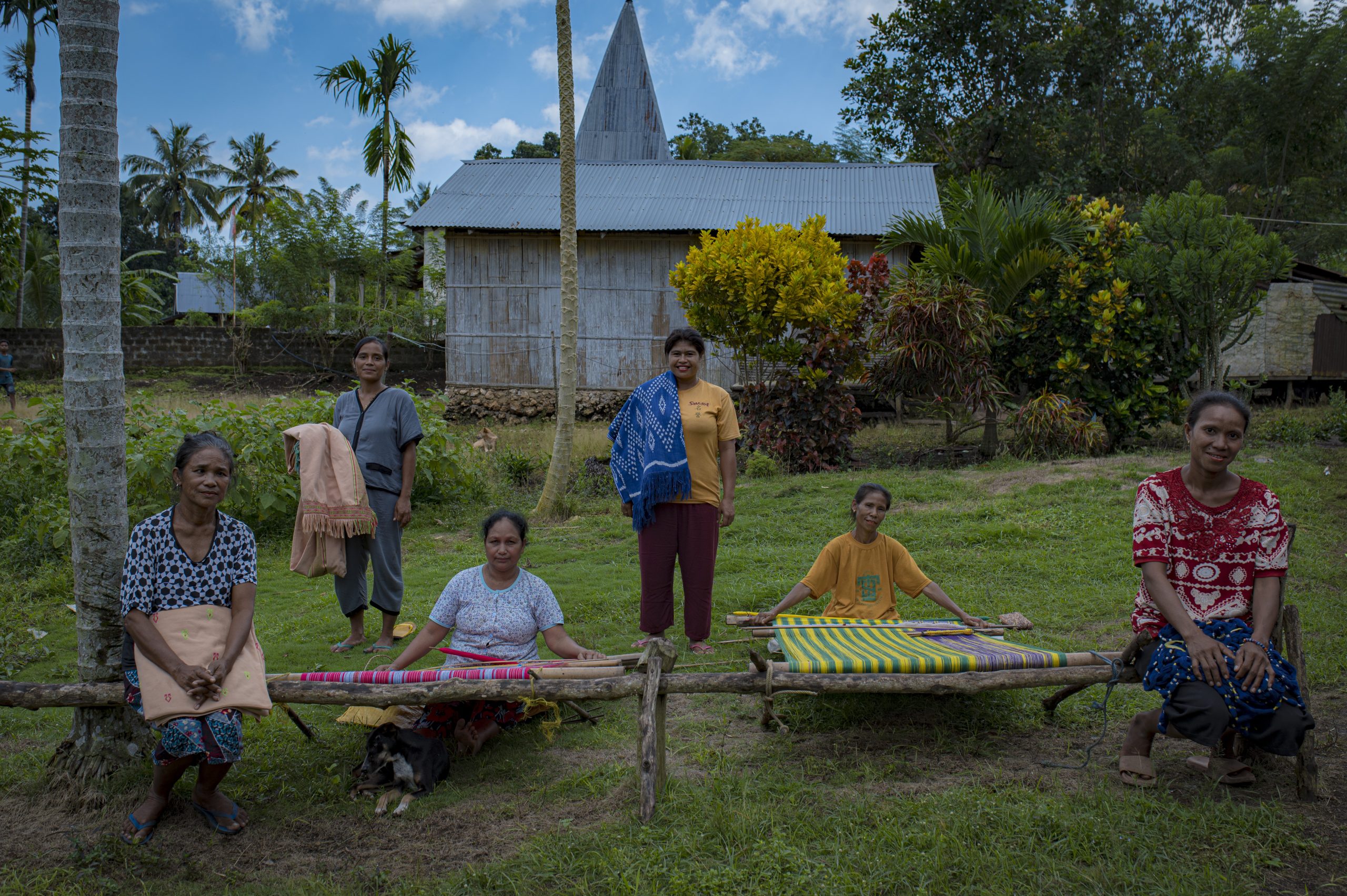
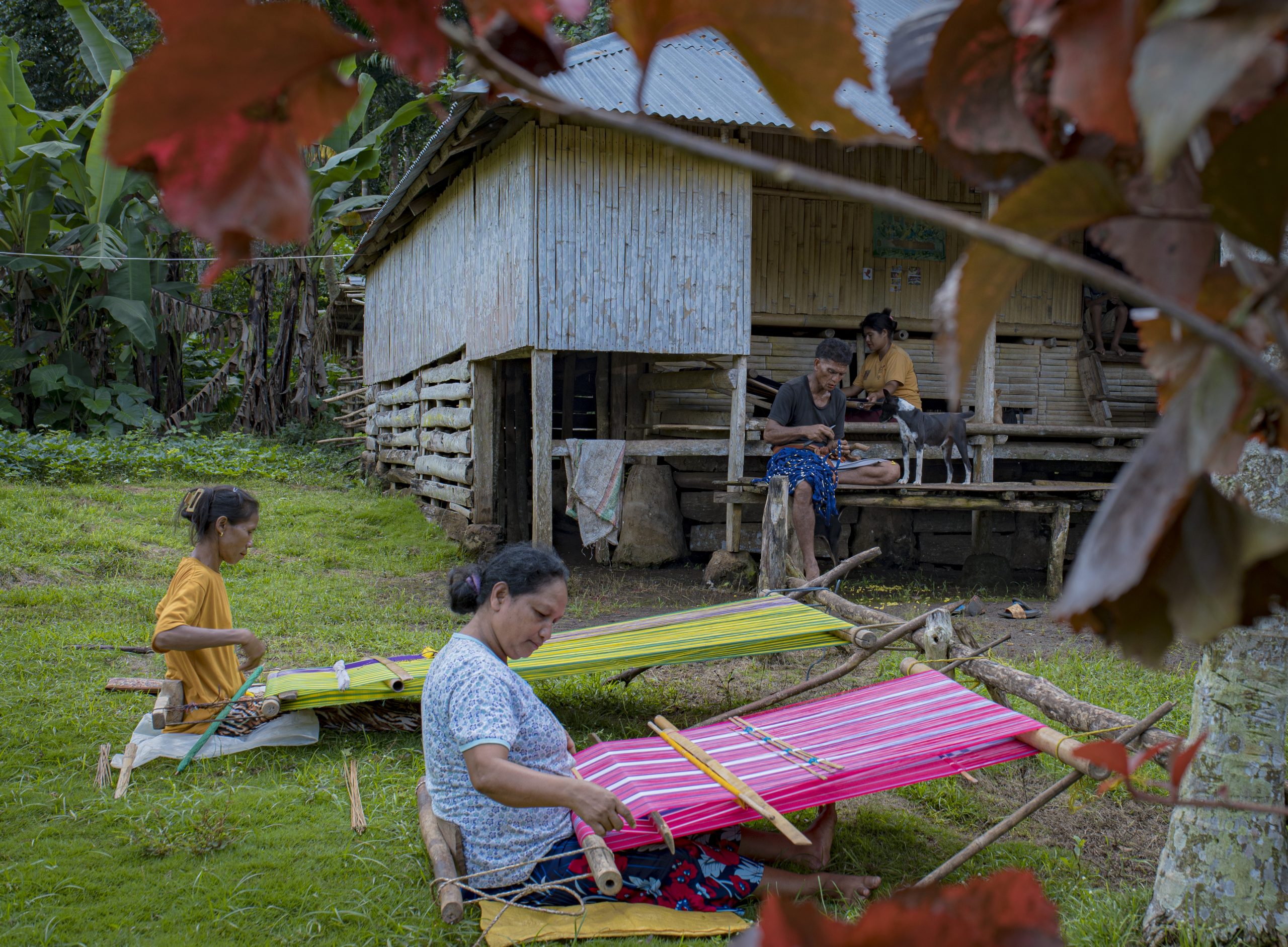
Group activities, said Ernesta, who weaves together every month and even several times a week, further increase the children’s enthusiasm for learning. The sound of wood tapping from the loom that is done together seems to make them excited. “Weaving doesn’t take time, at most 1.5 hours. But, preparing the equipment may take a longer time,” Ernesta continued.
Paulina Pati Bebe (71 years old), a group member, confirmed the statement. “In the past, people wove in their houses. Now, we work in groups. So, no lay back,” she said.
“We weave and tell stories at the same time. The story goes on, the weaving is done.”
Each member of the Lamba Leko Group can produce woven fabric up to 10 pieces of clothing materials. Clothing material is considered the easy part, because it uses little material and is smaller in size. It is also cheaper, 90 thousand rupiahs.
Compared to sarongs used by men, the price ranges from 200 thousand rupiahs to 1,500,000 rupiahs. Selling it in the market can be cheaper because there are many options. Weavers can sell woven fabric for cloth for only 85 thousand rupiahs. Sarongs can be up to 150 thousand rupiahs.
The group members sell it individually, and they agree to put 100 thousand rupiahs to 150 thousand rupiahs per month into the group’s account. This money is jointly managed for the urgent needs of the members.
Urgently needed money in the Sumba society is indeed unpredictable. Cultural events, such as village celebrations and rituals, require contributions from every villager. “We offer loans to members, interest-free. And, it should be acknowledged by the group members,” said Yustina.
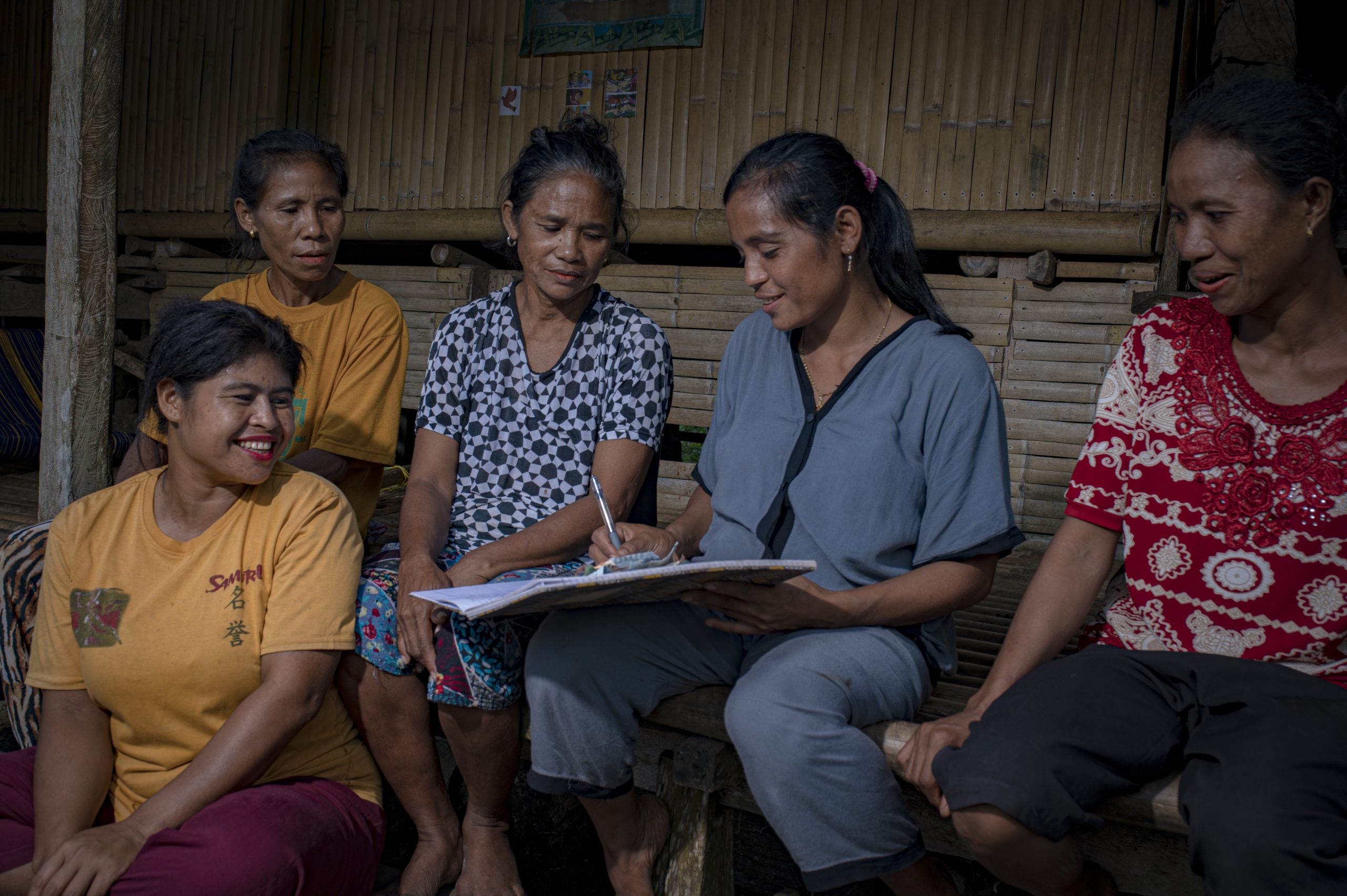
Ernesta, for example, once borrowed 200 thousand rupiahs for family needs. But then it was paid off in three days. The group is built on a sense of trust and the principle of mutual assistance. “There was a member who borrowed 500 thousand rupiahs to buy raw materials for weaving. After the weaving was done and sold, she paid it off immediately,” said Yustina.
The empowerment of female weavers was then reinforced through the Inclusive Rural Community Livelihood Development Program in Eastern Indonesia (BangKIT), initiated by BaKTI Foundation and the Village Administration. “BangKIT taught us group management and bookkeeping. At first, I thought it was a waste of time,” said Yustina.
“After going through it, bookkeeping is indeed very important. People do forget. So all expenses and income should be recorded properly by the group leader,” she continued.
In the group, Yustina is very strict. Even though she cannot read or write. “The record must be done by the leader. Because she can read and write. The others and I ensure that all activities go through a consensus. If it is not, I don’t want to,” she said.
This group has a dream, one day, they will have a special place to sell and showcase the weaving products of the group members. Whether in someone’s house or a designated place.
They realize that the sale of woven products can no longer rely on mass buying and selling practices in the open market. The world can reach Sumba with the internet. “We plan to discuss it with the Village Administration. It can’t be done because our members are still confused about using phones and the internet,” said Ernesta. “We want a big group. Not big individuals. Yet, the group helps the members to be good,” she continued.
Many people come to Sumba looking for certain fabrics and patterns. Only a few people maintain the weaving tradition passed down from generation to generation, using cotton and natural dyes, but it does not mean that weavers will vanish. “The best thing about Sumba is its weaving. Sadly, the weavers are not thriving,” other member commented.
In Waeholo, weaving cannot be the mainstay of the family. It is done during break and leisure time. Marketing relies on the public market held twice a week. Or relying on buyers from the local community itself for cultural events.
Tourists who shop in the district center find the prices way more expensive. Some female weavers said the price of a simple patterned sarong for men is no longer reasonable, and people still buy it. “Maybe they buy it at a cheap price from the weavers, and sell it at a high price. It shouldn’t be like that,” said Marta Ambu Kaka, one of the group members.
Martha said woven cloth reflects the identity of the Sumbanese. Simple and full of gratitude. “Selling the weaving products at a high price, though it is not difficult to make, is not proper,” she continued.
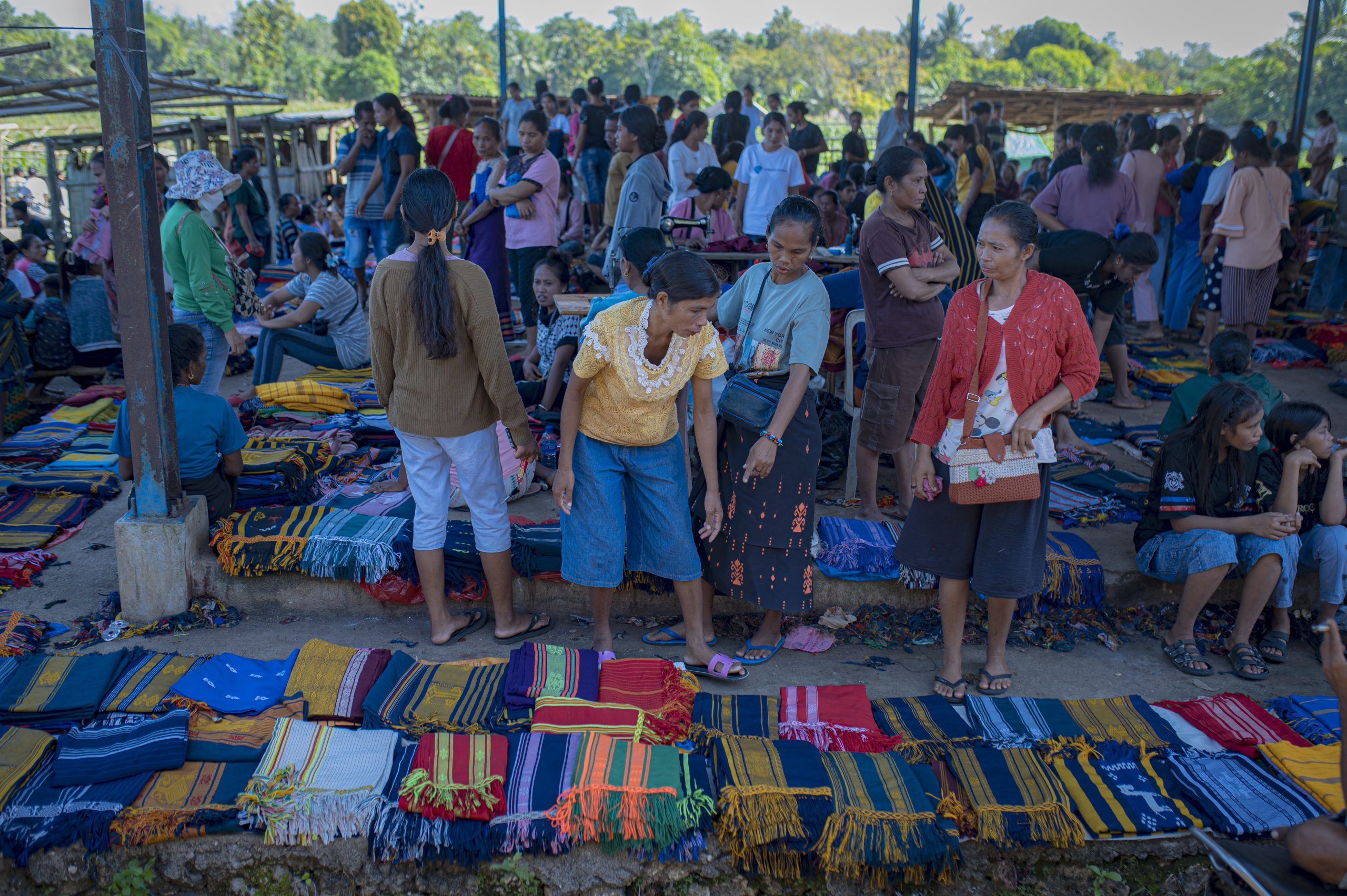
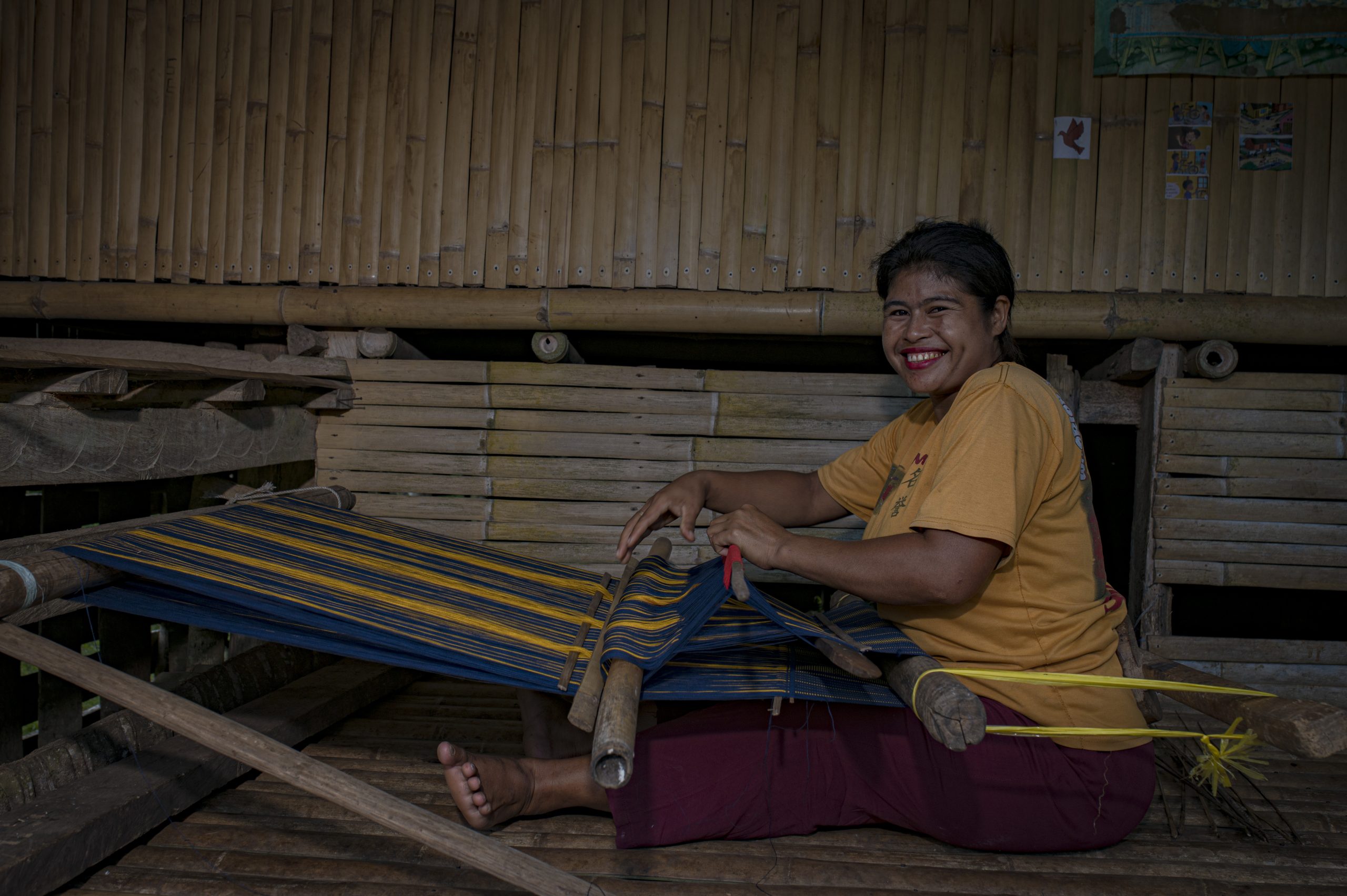
Derivative Products
In Buru Deilo Village, Mele Ngodo, a weaving group, also initiated by the BangKIT Program, has made derivative products from leftover woven fabrics. When the team held a meeting in a joint study class, some villagers were not aware of the use of the leftover fabrics.
Some of the items they used were made from leftover fabrics bought in shops or markets. “I finally realized. All this time, we just threw the leftovers away or used them as rags,” said Wilhelmenia Lende (36 years old).
Wilhelmenia is the leader of the Mele Ngodo Group, which means work done in free time. With Mele Ngodo, she finds activities that combine work, earn money, and are a movement to strengthen women.
Wilhelmenia uses the leftover woven fabrics to make bandannas, pouches for cellphones, wallets, earrings, bracelets, and hair ties. “I am very happy with what I do. It’s my wallet, it’s from leftover woven fabrics,” she said proudly while showing it.
BangKIT provided sewing machines and thread as the basic requirements and capital for the group activities. “We are now a model group for villages. I have visited several groups and villages to share knowledge,” Wilhelmenia said. “I am very happy.”